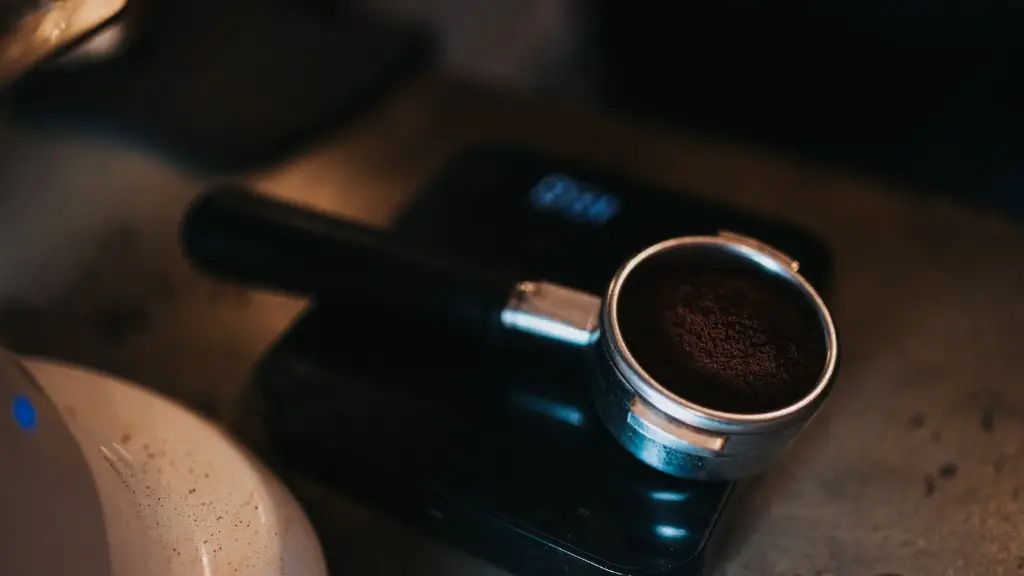Introduction
Coffee has become a staple in many diets around the world. It’s a popular way to get an extra boost of energy in the morning and an often used tool to make it through the afternoon fatigue. But can you drink coffee while on a diet?
The answer to this question may not be as straightforward as a simple yes or no. Coffee can be a great supplement to any diet; it can help to fight cravings, boost the metabolism and even provide essential antioxidants for those trying to stay healthy. But there are some potential drawbacks to drinking coffee while on a diet that should not be ignored.
The Benefits of Drinking Coffee on Diet
One of the biggest benefits of drinking coffee on a diet is that it helps to stimulate the body’s metabolism, which can help with weight loss. Studies have shown that coffee can increase the body’s basal metabolic rate by up to 11%, meaning that simply drinking a cup of coffee can increase the amount of energy the body burns. It’s also been shown to help suppress the appetite, which can be a major help when trying to stick to a diet.
Coffee can also be a source of beneficial antioxidants. According to an article in the Journal of Nutrition and Metabolism, coffee is “the largest source of dietary antioxidants in most Western diets.” This means that drinking coffee can help to ward off illnesses, such as cancer, heart disease, and diabetes.
The Drawbacks of Drinking Coffee on Diet
Although coffee has many benefits, it also has some potential drawbacks. Most notably, it can interfere with sleep, which can be an important part of any diet plan. Sleep deprivation can increase levels of the hormone “ghrelin”, which is linked to increased food cravings and overeating.
Coffee can also affect the balance of essential nutrients in the body. For those on a low-calorie diet, lacking in essential vitamins and minerals, this can be a problem. Too much caffeine can also lead to increased stress, anxiety, and even depression.
Alternatives to Drinking Coffee on Diet
For those who don’t want to risk the side effects of drinking coffee while on a diet, there are some alternatives to consider. Decaf coffee has been shown to provide many of the same benefits as regular coffee without the negative side effects, but it should still be consumed in moderation. Other alternatives include green tea and herbal teas, which are all excellent sources of antioxidants.
The Right Way to Drink Coffee on Diet
If you do decide to drink coffee on a diet, it’s important to do it responsibly. Coffee should be consumed in moderation and not used as a substitute for foods that are high in nutrients. Black coffee is best, as it has the least amount of calories and has no added ingredients that could contain hidden sugars or fats. It’s also important to limit the number of cups of coffee you drink each day. The American Heart Association recommends no more than 400mg of caffeine per day, which is the equivalent of 4 cups of coffee.
Effects of Caffeine on the Diet
Caffeine is a stimulant that can have both positive and negative effects on dieting. It can help to increase energy levels and keep you alert, allowing you to make better food choices. It can also help to increase metabolism and reduce cravings. However, too much caffeine can lead to jitteriness, nervousness, and even insomnia. It’s important to be aware of these effects and adjust your caffeine intake to suit your dieting needs.
Drinking Coffee for Optimal Results
While drinking coffee can be beneficial to a diet, it should be done in moderation. Drinking too much coffee can result in adverse side effects and interfere with your sleep, which can ultimately lead to weight gain. The best way to use coffee as a diet aid is to drink one or two cups a day, choose an unsweetened variety, and add no more than a teaspoon of sugar or milk per cup.
Coffee Versus Diet Beverages
It’s important to note that there are alternatives to drinking coffee while on a diet, such as diet beverages. These are often sweetened with artificial sweeteners and have fewer calories than regular coffee. However, they can still contain large amounts of sugar and caffeine and may not be the healthiest choice.
What to Watch Out for in Coffee
When drinking coffee while on a diet, it’s important to know what to watch out for. Some coffee drinks contain large amounts of sugar, fat, and calories that can add up quickly. Additionally, some coffee drinks are made with artificial sweeteners that can have a negative effect on your body. It’s best to stick with black coffee and avoid any sweeteners or added ingredients that could sabotage your diet.


